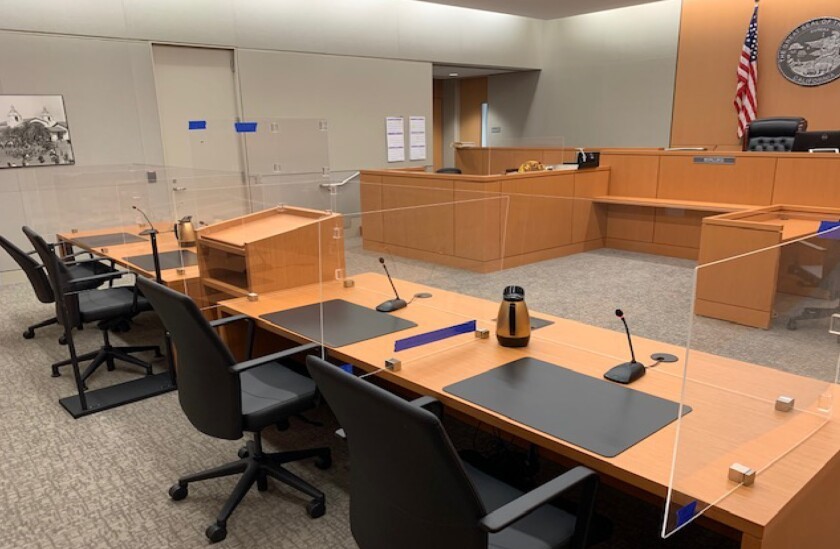
by Maria F. Zamora C. || 07 February 2024 ||
The relationship between the various courts and their jurisdiction can be overwhelming. This includes federal, state, district, circuit, bankruptcy, and the United States Supreme Court. This post will help explain the difference between the jurisdiction of these various courts. Prior to filing a complaint, it is important to know where you will file it. At Sharif | Faust Lawyers, we thoroughly analyze our Client’s claims in determining the appropriate court selection. Although it may seem overwhelming, this post will provide insight into the differences between state court and federal court jurisdiction.
Federal Courts

There are several different federal courts, including district courts, circuit courts, the Supreme Court of the United States, and bankruptcy courts. The main difference between federal and state courts is their jurisdiction, which is the authority the courts have to hear a case.
District courts serve as the federal trial courts. These courts have limited jurisdiction and can hear a case if (1) the case gives rise to a federal question involving the U.S. government, the U.S. Constitution, or other federal laws (such as trademark law, copyright & patent law) or (2) if the case involves diversity of citizenship, which are disputes between two parties of a different state or country and the claim(s) exceed $75,000.00.
Circuit courts are appellate courts and can hear a case once the lower court makes a final ruling. The circuit court’s job is to determine whether the lower court applied the law correctly. The circuit courts have three judges, there is no jury, and the evidence is limited to what was presented in the lower court. The appellate courts use different standards of review to determine a case. The appellate court standards of review will be discussed in a later blog post.
The last level of the federal courts is the U.S. Supreme Court, the highest court of the land. The U.S. Supreme Court hears certain cases, such as those between two or more states or cases involving ambassadors. This Court also has appellate jurisdiction, meaning the Court can hear almost any other case that involves a point of constitutional or federal law. After a party asks the Court to review its case, the U.S. Supreme Court has the discretion to decide whether or not to do so.
Lastly, bankruptcy courts are limited to hearing bankruptcy cases.
State Courts

State courts, on the other hand, do not have as many limitations on hearing a case as federal courts do. In California State courts are also known as “superior courts” and include civil courts, family courts, criminal courts, and juvenile courts. There are also state appellate courts and state supreme courts. The authority of superior courts to hear a case depends on the personal jurisdiction of the party the claims are against and the subject-matter jurisdiction of the case. Finally, if a superior court can hear the case, we need to know in what venue to file the case.
Jurisdiction
The first requirement to sue someone in superior courts is to establish whether it has power over a person or a business (personal jurisdiction). For example, in the case of a citizen of the state of California suing a citizen of the state of Arizona, the state court may not have power over the person who lives in Arizona. In this example, the case may be heard by an Arizona court or potentially the federal court, as discussed above. For businesses, personal jurisdiction is generally where they do business.
The second requirement to sue someone in superior courts is to establish the authority of the court to hear the whole case (subject matter jurisdiction). There are three types of subject matter jurisdiction: (1) general jurisdiction, which allows the court to hear and decide cases unless a law or the constitution denies it; (2) limited jurisdiction, which restricts the cases the court can hear, such as a small claims court that can only hear cases with damages of $10,000 or less or limited civil courts that can only hear vases with damages for up to $25,0000; (3) exclusive jurisdiction which means only a particular court can decide a case.
The third requirement to bring a case in superior courts is to establish the proper venue, also known as the county where to file the case. Generally, the venue is appropriate in the county where (1) the person lives or does business or (2) where the dispute arose.
Just remember that each case is different, and the facts are important for figuring these out. We hope this blog post dismantled some of the preliminary questions regarding the difference between state court and federal court jurisdiction.
More Questions?
In future posts we’ll discuss this further. If you have questions beforehand though, please check out the rest of our blog for more information. The content of this blog is provided for informational purposes only, and we are not offering any legal opinions. If you wish to consult with Sharif | Faust, please contact us to set up a consultation. This blog does not create an attorney-client relationship with Sharif | Faust. To retain Sharif | Faust, you must sign a written attorney-client agreement. Remember, the results in any case depend upon the specific facts in that case. It is important that you consult with a lawyer you trust. By reading this blog, you agree to our Terms of Use.
